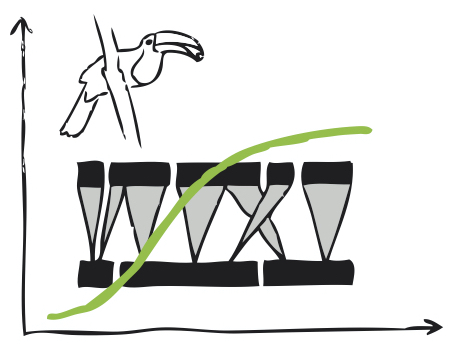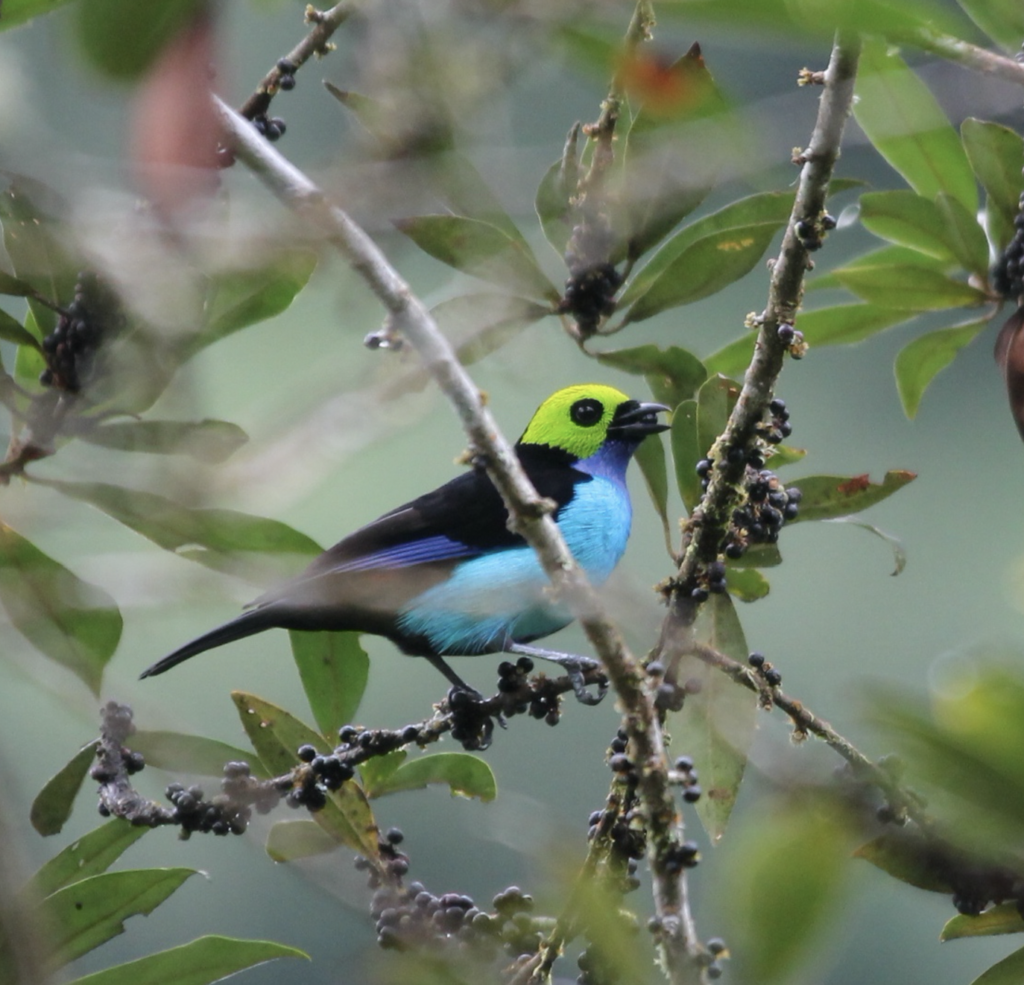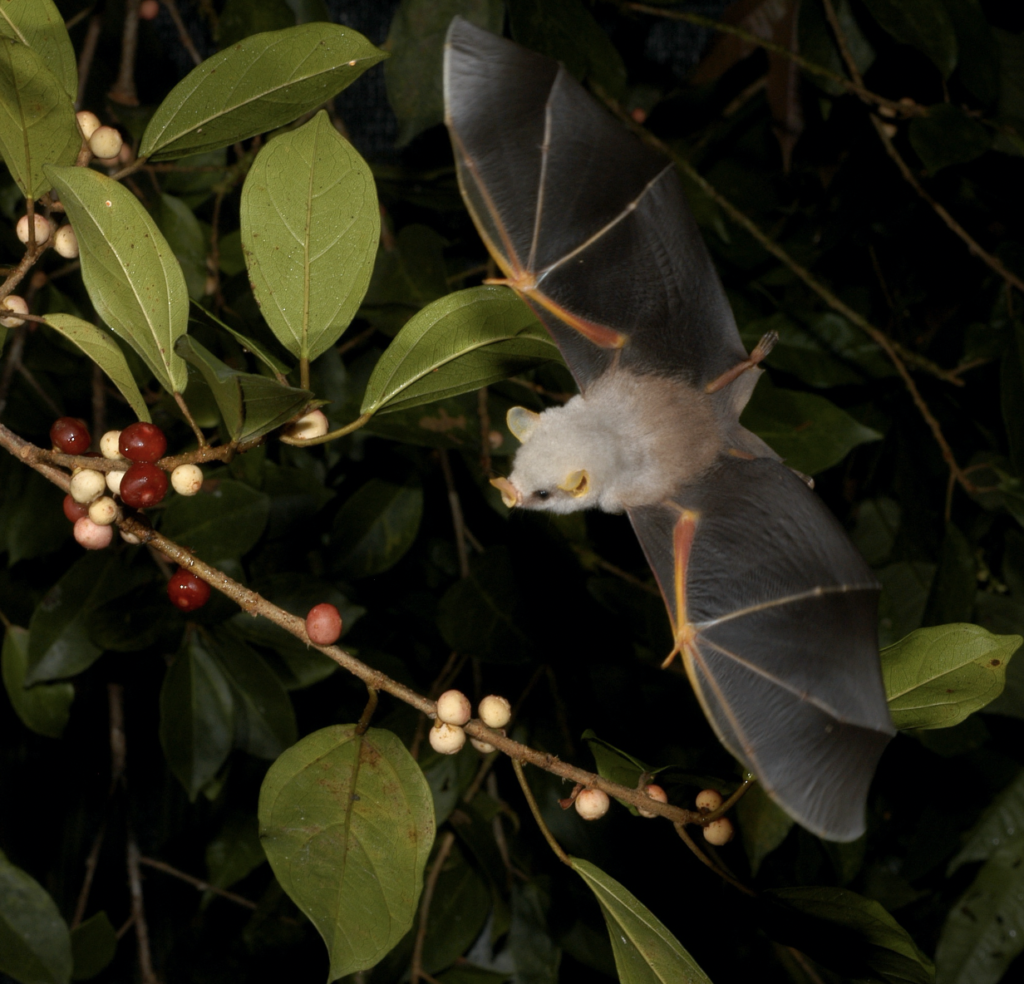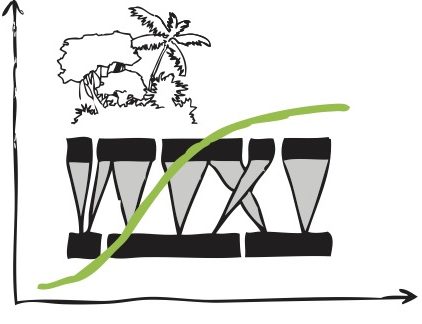Seed dispersal by frugivorous birds, bats and rodents
PIs: Matthias Schleuning (SBiK-F Frankfurt), Eike Lena Neuschulz (SBiK-F Frankfurt), Marco Tschapka (U Ulm), Boris Tinoco (U del Azuay), Santiago Burneo (PU Católica Ecuador)

Seed dispersal by animals is a crucial ecological process and is essential for plant populations to maintain gene flow and to colonize new locations. Because seed dispersal of more than 75% of woody tropical plants depends on animals, animal seed dispersers are key players in tropical ecosystems underpinning forest recovery.
In our subproject, we will collect data on the interactions between plants and frugivorous birds, bats and rodents along the entire chronosequence of forest recovery. For both animals and plants, we will record response, interaction, and dispersal traits by combining direct trait measurements and literature surveys. Observational studies will be complemented by an on-site experiment of seed rain and seedling recruitment, together with subprojects 5 and 6.
With our project, we seek to investigate the temporal dynamics of seed-dispersal networks, and in particular will test how plant and animal traits shape network reassembly and how seed-dispersal processes translate into seed rain and seedling recruitment. We will address these objectives for the entire seed-dispersal network and will relate the resistance and resilience of different network components (i.e., birds, bats, rodents) to human disturbance. By combining observations and experiments, our subproject will test and, potentially, advance current theories on network reassembly and tropical forest recovery.


Selected Publications
- Albrecht J, Classen A, Vollstädt MGR, Mayr A, Mollel NP, Schellenberger Costa D, Dulle HI, Fischer M, Hemp A, Howell KM, Kleyer M, Nauss T, Peters MK, Tschapka M, Steffan-Dewenter I, Böhning-Gaese K, Schleuning M (2018) Plant and animal functional diversity drive mutualistic network assembly across an elevational gradient. Nature Communications 9:3177
- Bender IMA, Kissling WD, Blendinger PG, Böhning-Gaese K, Hensen I, Kühn I, Muñoz MC, Neuschulz EL, Nowak L, Quitián M, Saavedra F, Santillán V, Töpfer T, Wiegand T, Dehling DM, Schleuning M (2018) Morphological trait matching shapes plant–frugivore networks across the Andes. Ecography 41: 1910-1919
- Brändel SD, Hiller T, Halczok TK, Kerth G, Page, RA, Tschapka M (2020) Consequences of fragmentation for Neotropical bats: The importance of the matrix. Biological Conservation 252: 108792
- Donoso I, Sorensen MC, Blendinger PG, Kissling WD, Neuschulz EL, Mueller T, Schleuning M (2020) Downsizing of animal communities triggers stronger functional than structural decay in seed-dispersal networks. Nature Communications 11:1582
- Neuschulz EL, Mueller T, Schleuning M, Böhning-Gaese K (2016) Pollination and seed dispersal are the most threatened processes of plant regeneration. Scientific Reports 6:29839
- Mello MAR, Felix GM, Pinheiro RBP, Muylaert RL, Geiselman C, Santana SE, Tschapka M, Lotfi N, Rodrigues FA, Stevens RD (2019) Insights into the assembly rules of a continent-wide multilayer network. Nature Ecology and Evolution 3:1525–1532
- Quitián M, Santillán V, Espinosa CI, Homeier J, Böhning-Gaese K, Schleuning M, Neuschulz EL (2018) Elevation-dependent effects of forest fragmentation on plant-bird interaction networks in the tropical Andes. Ecography 41:1497–1506
- Schleuning M, Neuschulz EL, Albrecht J, Bender IMA, Bowler DE, Dehling DM, Fritz SA, Hof C, Mueller T, Nowak L, Sorensen MC, Böhning-Gaese K, Kissling WD (2020) Trait-based assessments of climate-change impacts on interacting species. Trends in Ecology and Evolution 35:319–328
- Wagner I, Ganzhorn JU, Kalko EKV, Tschapka M (2015) Cheating on the mutualistic contract: nutritional gain through seed predation in the frugivorous bat Chiroderma villosum (Phyllostomidae). The Journal of Experimental Biology 218:1016–1021

